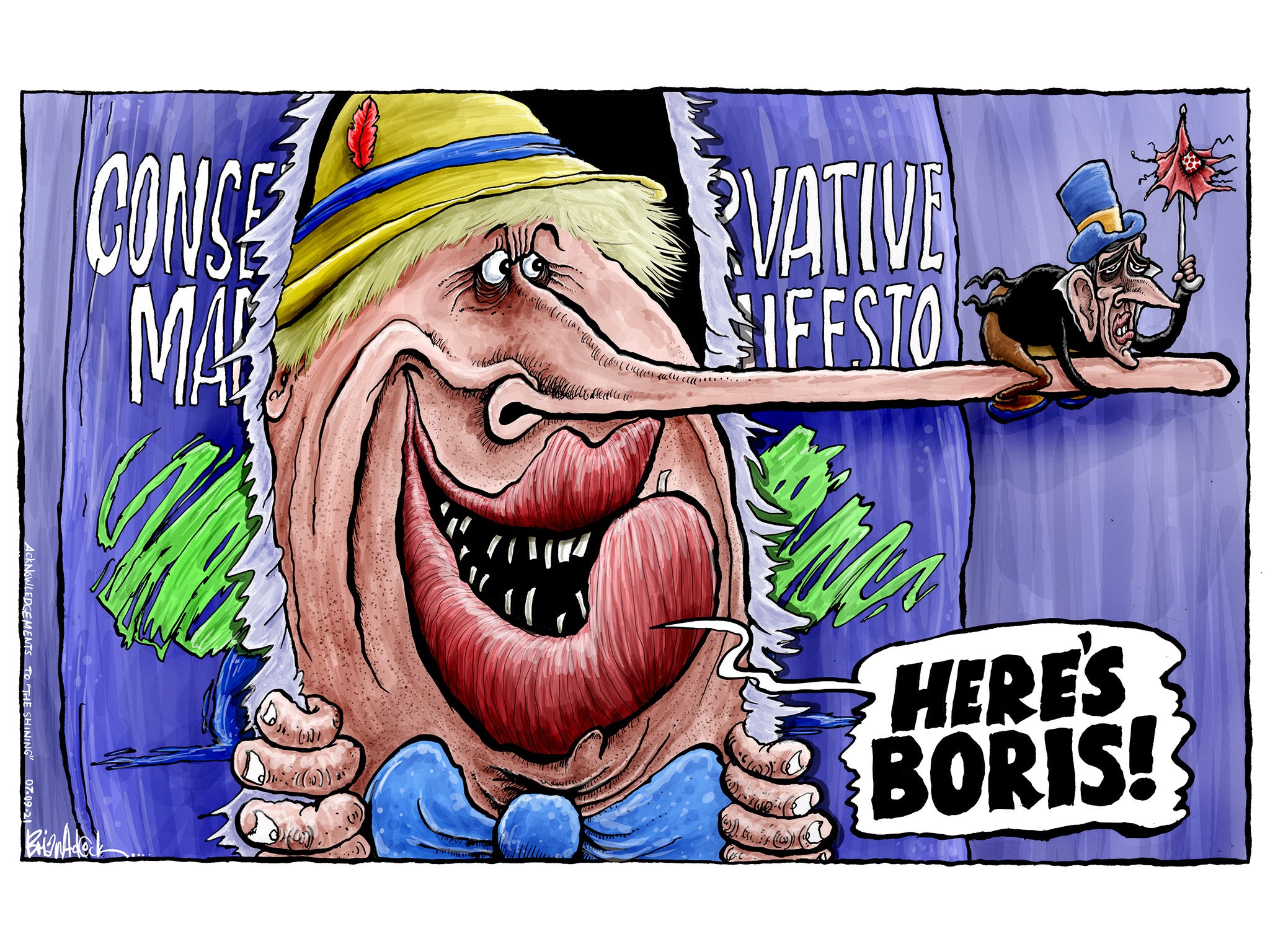Tax rises and broken promises – how much longer can the Conservative Party get away with it?
Editorial: There may come a point where the evidence of incompetence, arrogance and foolishness will overwhelm this government, but it has not arrived – yet

Sometimes politics can be a binary matter, and utterly predictable: as in, either the government will break its manifesto pledge not to raise taxes or it will renege on the promise, solemnly delivered by Boris Johnson in Downing Street, to fix the social care crisis “once and for all”.
Of course, because of this prime minister’s extraordinary administrative capabilities, it is possible that he will engineer a third way, and actually contrive to break both his promises, by grudgingly raising the wrong taxes by the wrong amount, and thus diverting insufficient resources to fix long-term care “once and for all”. Indeed there are even some ominous noises about the £10bn or so likely to be raised being partially used to fix the “other” crisis – in the NHS. It’s a mess.
What is certainly clear is that, one way or another, the government will let people down again, and it cannot continue to use Covid as an excuse, devastating as that has been for the public finances. The broken promises and the U-turns are amassing faster than the pages of Dominic Cummings’s blog. To take a few examples: the commitment to spend 0.7 per cent of national income on overseas aid; the reverses on school meals forced by Marcus Rashford; protecting Northern Ireland in the Brexit deal; a post-Brexit deal for Scottish fisheries; adequate progress on reaching carbon net zero by 2050; and of course all the missed targets and reversals over lockdowns, test and trace and the exams fiasco.
Even when it comes to sacking his ministers, Mr Johnson dithers and delays, to borrow a favourite phrase of his, until his hand is forced. Even where he has delivered on a manifesto, as with the so-called Australian points-based immigration system, Britain has suffered grievously from the effects of the law of unintended consequences, with the road haulage system and other sectors increasingly broken by labour shortages.
The chaotic and humiliating retreat from Afghanistan has appalled even those naturally inclined to support Mr Johnson. A series of political, personal and financial scandals involving Mr Johnson himself and his ministers also continue to undermine the government’s already weak reputation for sound governance.
Gavin Williamson, Priti Patel, Dominic Raab and Robert Jenrick all remain in the cabinet, while Matt Hancock would also still be in office had Mr Johnson had his way. Only Mr Cummings has departed, the better to tell the world about just how hopeless the “broken shopping trolley” and his coterie in No 10 really are.
There may come a point, surely, where the evidence of incompetence, arrogance and foolishness will overwhelm this government, but it has not arrived – yet. By rights, and by most historical standards, the Labour Party, the Greens and the Liberal Democrats should be way ahead of where they currently stand in the opinion polls. However, Mr Johnson and his party remain stubbornly ahead, and where he himself has suffered setbacks in his ratings, such as when he tried to defend Mr Cummings, he has eventually crawled out of the hole.
Partly it is because the British public seems to be happy to give Mr Johnson the benefit of the doubt to an extraordinary degree, tending to accept the alibis of Covid and the imperative of Brexit all too readily. Occasionally the opposition parties have scored some wins, and the SNP reigns supreme in Scotland; but the other parties are still more often mistrusted by the voters, and while that is the case, Mr Johnson will continue, as he has for so long, to get away with it.



Join our commenting forum
Join thought-provoking conversations, follow other Independent readers and see their replies
Comments